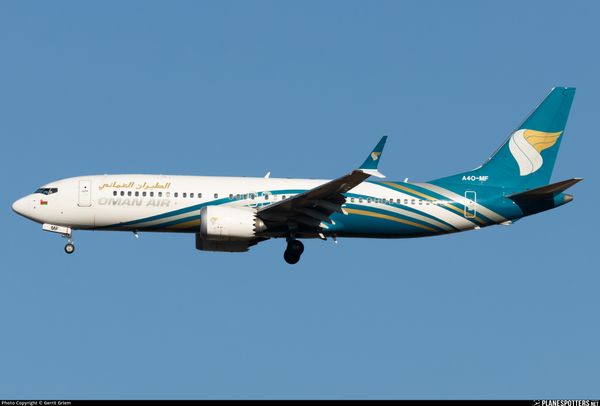Tensions in the Middle East are rising, with the Israel-Hamas war entering its second month of fighting. The situation is tenuous as the United States steps up its patrolling of the Middle East, both by air and sea, and Iran continues to back rebel militant groups. A group of Iran-backed rebels in Yemen have shot down a U.S. military drone amidst all of this tension.

According to a U.S. military official, the $32 million MQ-9 reaper drone was purportedly in international waters off the coast of Yemen, conducting a surveillance mission when the drone was intercepted by missiles fired from the Yemeni coast and subsequently shot down. The U.S. military has stated that the U.S. Central Command will closely investigate the shootdown in the coming weeks.
Shortly after the drone was shot down, the U.S. Air Force began to strike Houthi military targets in Syria. It should be noted that Iran primarily supports Houthi militant groups. This is not the first time militant forces have attacked the U.S. military. Still, since the re-kindling of the Israel-Hamas conflict, attacks from these militant groups on the U.S. military have been steadily rising. In response to this, the U.S. Air Force, using one F-15 and two F-16 fighter jets, retaliated against militant groups in Syria by using precision-guided missiles to take out a weapons and ammunition storage facility in Abu Kamal.

While the Middle East has always been a dangerous place for aviation due to political tension, 2023 is a more contentious place than ever due to renewed tensions between Iran, Saudi Arabia, and the United States.
Furthermore, the Israel-Hamas conflict, which flared up once again in October of this year, has pushed commercial flights to avoid Israeli and Lebanese airspace as well as cancel flights, which has directly impacted the revenue of many airlines flying to the region now embroiled in tension.

Earlier in the year, flights in Iraqi airspace transiting a busy flight corridor between the Middle East and Europe near the Iranian border mysteriously went off course, with the navigational systems onboard the affected aircraft reportedly failing. Some of the aircraft that ran off-course came within just a few miles of entering Iranian airspace without permission.
According to many pilots who experienced strange navigational failures onboard their aircraft, signal "spoofing" was responsible for their planes straying off course. Signal "spoofing" is a form of interference with the signals sent and received by GPS systems onboard aircraft, boats, and anything that uses GPS for navigation. The often malignant practice involves sending a signal to the targeted GPS to make the GPS receiver believe that it is at a different location than the receiver (GPS) is at.

Suppose the Israel-Hamas war will become a regional conflict in the coming months. In that case, the effects on the commercial aviation industry will be massive, as major flight corridors, already pushed to their limits by excess traffic avoiding Russian airspace, will be forced to close, essentially bringing commercial aviation in that part of the world to a halt.
Frontier Airlines Wraps Up 2025 with Major International Expansion from Atlanta » How Borders Shape Human Stories » Oman Air Returns To Singapore After Nine Years with New Boeing 737 MAX Service »
Comments (0)
Add Your Comment
SHARE
TAGS
NEWS Middle East Israel Palestine War Conflict Geopolitics Iran Yemen US Military Drones Saudi ArabiaRECENTLY PUBLISHED
 Oman Air Returns To Singapore After Nine Years with New Boeing 737 MAX Service
Oman Air Returns To Singapore After Nine Years with New Boeing 737 MAX Service. It will resume nonstop service to Singapore Changi Airport (SIN) starting July 2, 2026, restoring a vital link between the Sultanate and Southeast Asia that was suspended in 2017.
ROUTES
READ MORE »
Oman Air Returns To Singapore After Nine Years with New Boeing 737 MAX Service
Oman Air Returns To Singapore After Nine Years with New Boeing 737 MAX Service. It will resume nonstop service to Singapore Changi Airport (SIN) starting July 2, 2026, restoring a vital link between the Sultanate and Southeast Asia that was suspended in 2017.
ROUTES
READ MORE »
 Wizz Air Relaunches Suceava Base with Two A321neos and Seven New Routes
Wizz Air has officially reopened its base at Suceava "Stefan cel Mare" International Airport (SCV). The reopening immediately enhances connectivity by launching seven new direct routes to five countries.
ROUTES
READ MORE »
Wizz Air Relaunches Suceava Base with Two A321neos and Seven New Routes
Wizz Air has officially reopened its base at Suceava "Stefan cel Mare" International Airport (SCV). The reopening immediately enhances connectivity by launching seven new direct routes to five countries.
ROUTES
READ MORE »
 How Borders Shape Human Stories
The existence of borders can be seen through not only maps; they are also emotional markers that determine how an individual travels or moves, how an individual dreams, and what the individual considers to be their place in the world.
INFORMATIONAL
READ MORE »
How Borders Shape Human Stories
The existence of borders can be seen through not only maps; they are also emotional markers that determine how an individual travels or moves, how an individual dreams, and what the individual considers to be their place in the world.
INFORMATIONAL
READ MORE »



